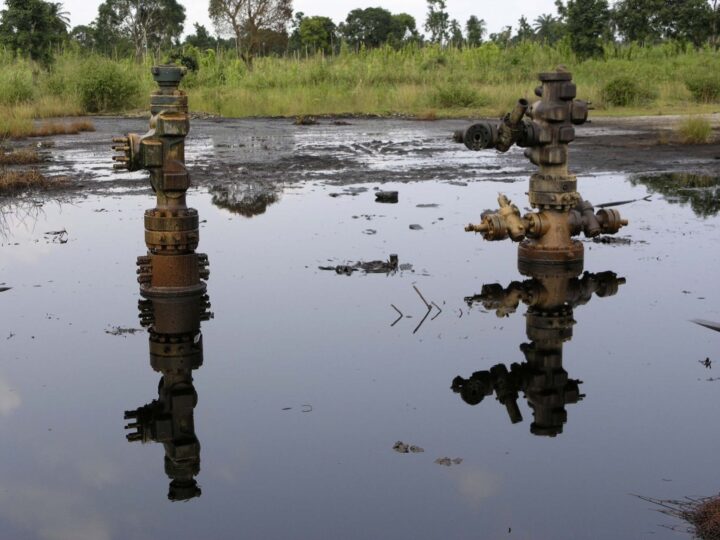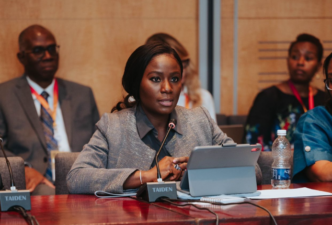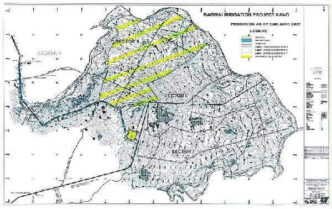BY KEN HENSHAW
In May 2021, the CEO of Shell, Ben van Beurden announced at its annual general meeting that the company will be divesting its crude oil assets from the Niger Delta, effectively bringing to a close nearly 70 years of Shell’s profitable crude oil venture in Nigeria’s Niger Delta. Justifying the decision to divest, the CEO explained that “we (Shell) cannot solve community problems in the Niger Delta, that’s for the Nigerian government perhaps to solve. We can do our best, but at some point in time, we also have to conclude that this is an exposure that doesn’t fit with our risk appetite anymore”.
Earlier in February 2021 while presenting the company’s Q4 2020 earnings, Ben van Beurden had described its Nigeria assets as a “headache”. He attributed the spills that his company was being pressured to address to acts of pipeline sabotage.
This is not the first time Shell is blaming anyone but itself for its long legacy of environmental pollution in the Niger Delta. In the past, the company had crafted narratives suggesting that the communities where crude oil is extracted from, bear responsibility for oil spills. On one occasion, company officials were recorded pressuring community members to admit that a spill caused by the failure of Shell’s equipment was really sabotage. For many years, Shell engaged in a campaign of disinformation directed at oil-producing communities, portraying them as instigators of sabotage against oil infrastructure and applying pressure on the company for financial handouts. As Shell ramped up its divestment plans in 2020 and faced a consistent flow of frightening lawsuits, it also intensified its disinformation, blaming the poor and impoverished communities of the Niger Delta for oil spills and its decision to exit the region.
Advertisement
However, the truth behind Shell’s 86-year history in Nigeria, as well as its rush to divest, is more complicated than the company will admit.
A colonial imposition from the start
Shell frequently refers to the communities whose farmlands and rivers it exploits as ‘host communities’. This portrayal provides the idea that Shell’s relationship with those communities has always been pleasant and mutually beneficial. This is untrue. Shell’s presence in Nigeria stretches back to colonial times when in 1938, the British government granted Shell D’Archy Exploration Company an exclusive exploration license over the whole country of Nigeria–an area of more than 923,769 square kilometres. Because they were deemed subjects of the British crown, the indigenous people who owned the lands and rivers were never consulted. At no time was their consent sought before their territories were invaded and occupied by Shell.
Advertisement
This achy relationship also defined how the company and British colonial authorities went about oil exploration activities in the region. Take the destructive decision to flare gas. As far back as 1960, British colonial authorities recognised that the flaring of associated gas in oil production sites was problematic. Shortly before Nigeria’s independence, the secretary of state for the colonies, Lord Home was approached with the need to address the flaring of gas in Nigeria as “there might be wastage of energy and resources going on which one day, those giving advice to the Nigerians (i.e. the British) could be reproached.”
The official reply was dismissive; “until there is the worthwhile market and until there are facilities (e.g. pipelines and storage tanks) to use the gas, it is normal practice to burn off this by-product from oil wells.” Again in 1963, the British Trade Commissioner in Lagos made the same argument when he said “Shell/BP’s need to continue, probably indefinitely, to flare off a very large proportion of the associated gas they produce…”
The justification for flaring gas was untrue in the 1960s, and even more so in 2024 when the market for gas sits above $1.5 trillion. But till now, Shell and its partners have found similar excuses to continue this harmful practice.
Evidence of Ecocide
Advertisement
Shell continues flaring gas in Nigeria because it is cheaper and more convenient to do so. In fact, according to the company’s Energy Transition Strategy 2024 document, around 50% of its global gas flaring is done in Nigeria. This systematic release of poisonous pollutants and greenhouse gases continues while the company pushes disinformation that it is working to reduce air pollution from its operations ‘including limiting emissions of nitrogen oxide, sulphur dioxide and volatile organic compounds’. Reputable studies have established that methane, carbon dioxide and other chemicals from flared gas poison people and cause various illnesses. Shell’s relentless flaring of gas is a major reason life expectancy in the Niger Delta is 41 years when it is 54 years in other parts of the country.
In its 2011 Sustainability Report Shell once again disinforms and absolves itself of responsibility regarding its alarming gas flare portfolio in Nigeria. It blames its failure to develop facilities to reduce flaring on the Nigerian government’s funding problems and insecurity in the Niger Delta. However, the insecurity it refers to does not prevent it from continuing to produce crude oil from the same ‘insecure’ places.
In 2006, a high court in Nigeria took a stand and declared gas flaring a violation of the right to life and ordered Shell to discontinue the practice in a year. The company responded 15 years after through an appeal challenging the jurisdiction of the court to entertain the suit! Gas flaring continues all over the Niger Delta with over 178 flare points emitting millions of tons of CO2 yearly and impacting the health of millions of people.
Perhaps the most ingenious aspect of Shell’s disinformation campaign in the Niger Delta is how it has managed to change the narrative on oil spills to the point where communities affected by spills are blamed for causing them.
Advertisement
Since the first publicly recognized oil spill in 1970, it had been widely recognized that spills in the Niger Delta stem from ruptured pipelines or other equipment failures. In 1990 when the Movement for the Survival of Ogoni People was established by the slain writer and activist Ken Saro Wiwa, the movement openly accused Shell of causing oil spills in Ogoniland. Shell did not refute the allegations indicting its equipment’s role in causing spills. At the time, the company would only argue about the volume of oil spilled, and never about the cause of the spills. This is simply because it was well known that there was no other cause of oil spills aside from pipeline rupture and equipment failure.
A few years later however, as global focus and condemnation shifted towards Shell in the wake of the MOSOP campaigns, the brutal treatment of the Ogoni people, and the tragic execution of Ken Saro Wiwa and his associates, Shell began to attribute oil spills to sabotage by militants, mainly as a strategy to deflect attention from itself. Gradually but steadily, Shell’s public relations apparatus disseminated this piece of disinformation across both local and international media, reiterating it in publications and reports intended for their shareholders. Over time, claims of sabotage and theft replaced negligence and equipment failure as the predominant cause of oil spills. In 2021, the cycle of disinformation was complete when Shell’s CEO referenced its own propaganda and falsehoods as justification for its withdrawal from the Niger Delta!
Advertisement
Shell’s role in causing oil spills is well established. In 1994, Bopp Van Dessel, the head of environmental studies for Shell Nigeria, resigned, arguing that he felt unable to defend the company’s environmental record “without losing his personal integrity.” Speaking to British television, he said “any Shell site that I saw was polluted…It was clear to me that Shell was devastating the area.”
A 2008 US diplomatic cable leaked by Wikileaks quoted a pipelines expert, who said, “that most oil spills in the Niger Delta occur because 73 percent of pipelines are corroded and need to be replaced; pipelines, which have a technical life of 15 years, have often been in use for thirty years”.
Advertisement
During a legal action against Shell in the UK, the company was compelled to disclose internal documents which show that it has for a while been aware that its pipelines were old and leaky. One internal memo based on a 2002 study says that, “the remaining life of most of the (Shell) Oil Trunklines is more or less non-existent or short, while some sections contain major risk and hazard.” Another memo dated 10 December 2009 shows a Shell employee warning that, “(the company) is corporately exposed as the pipelines in Ogoniland have not been maintained properly or integrity assessed for over 15 years.”
A study conducted on pipelines in the Niger Delta found that more than 70% of them were over 20 years old, while over 40% were more than 30 years old with many lines suffering from mechanical failures due to poor construction and maintenance. Despite overwhelming evidence which points to the fact that failure of maintenance and neglect of its equipment is the leading cause of oil spills, Shell continues to blame communities for leaks.
Advertisement
Shell’s Dirty Exit
The major reason Shell denies responsibility for oil spills is to avoid paying compensation for losses to livelihoods that the spills often cause. When a spill occurs, the practice in Nigeria is to determine the cause through a joint investigation visit comprising representatives of Nigeria’s regulatory authority, the responsible oil company, the state government and the community. If the spill is determined to be caused by equipment failure, the company will have to compensate for the losses and carry out clean-up activities. However, if the visit determines that the spill was caused by third-party interference or sabotage, the company cleans the mess but pays no compensation. Unfortunately, the joint investigation visits are terribly skewed against communities. Amnesty International questions the reliability of these investigations. According to the organization, “there are systemic flaws in the system for investigating oil spills in the Niger Delta: the outcome of these investigations lacks credibility.”
A 2003 leaked cable originating from the US Embassy in Abuja described an instance where Shell manipulated the processes for determining the cause of an oil spill to ensure the impacted community was blamed. According to the cable, Shell pressured members of the investigation team to come to the conclusion that sabotage was the cause of the spill. The cable said further that “Shell often cites sabotage as the cause for spills that actually resulted from pipe failure or natural accidents in order to avoid liability for the resulting environmental damage.” Shell claims that up to 80% of oil spills are due to sabotage. This claim is based on the highly flawed joint investigation process and is not credible.
Shell’s disinformation against communities serves the company’s interest in the long run. Just as it employs disinformation to deny oil spills and its responsibility for remediation and compensation, it is doing the same with its divestment when it blames sabotage by communities for oil spills and their failing equipment. Contrary to the claim by Shell’s CEO which gives the impression that the company is divesting because it is being frustrated by communities, the company is actually divesting to flee the rising demands for ecological accountability. In May 2021 in the Netherlands Shell was found liable for causing dangerous climate change worldwide and ordered by the District Court of the Hague to reduce its CO2 emissions by 45% within ten years. In 2014 Shell agreed to pay £55m to settle a case brought by thousands of residents of the Bodo community after a massive oil spill. The British law firm, Leigh Day, represented the community, where Shell admitted “some fault”, but disputed the extent of the spill. In November 2023, London’s High Court opened the door to 13,000 farmers and fishers from the Ogale and Bille communities to sue Shell over chronic pollution of their water sources.
For several decades, Shell operated in the Niger Delta with impunity, confident in the backing it receives from governments- colonial or Nigerian. But the tide has turned, and communities have found a way to seek- and win- justice in international jurisdictions. With a number of lawsuits filed against oil companies for their activities in the Niger Delta, Shell has decided it is time to leave. The confusion and controversy generated by its vociferous attacks on communities creates the perfect subterfuge for the company to make its dirty exit.
They must be stopped.
Ken Henshaw is a 2024 Bertha Challenge Fellow
Views expressed by contributors are strictly personal and not of TheCable.












